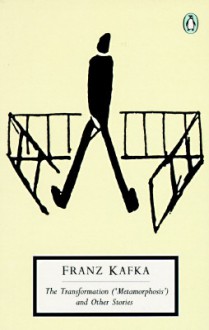The Transformation and Other Stories: Works Published During Kafka's Lifetime
A companion volume to The Great Wall of China and Other Short Works, these new translations bring together the small proportion of Kafka's works that he thought worthy of publication. This volume contains his most famous story. The Transformation, more popularly known as Metamorphosis. Other...
show more
A companion volume to The Great Wall of China and Other Short Works, these new translations bring together the small proportion of Kafka's works that he thought worthy of publication. This volume contains his most famous story. The Transformation, more popularly known as Metamorphosis. Other works include Meditation, a collection of his earlier studies; The Judgement, written in a single night of frenzied creativity; The Stoker, the first chapter of a novel set in America; and A Fasting Artist, a collection of stories written towards the end of Kafka's life. There is also a fascinating occasional piece, The Aeroplanes at Brescia, Kafka's eye-witness account of an air display in 1909. Taken together, these stories reveal the breadth of Kafka's literary vision and the extraordinary imaginative depth of his thought. @bugged-out I seem to have transformed into a large bug. Has this ever happened to any of you? No solution on Web MD. From Twitterature: The World's Greatest Books in Twenty Tweets or Less
show less
Format: paperback
ISBN:
9780140184785 (0140184783)
Publish date: March 1st 1992
Publisher: Penguin
Pages no: 236
Edition language: English

Although I read the whole collection it is the title story that intrigues me most with "In the Penal Colony" a close second. Kafka writes very strange tales. Tales that barely make sense on an intellectual level but work at a more instinctive and emotional level. "The Metamorphosis" could be a metap...

I understand the meaning behind the story, but that doesn't mean I have to like how it ended, which I don't. Sort of depressing really.

It makes me suspicious when a book’s most frequently quoted line is the very first line. This may mean that a book goes downhill after a glorious opening, or it could mean that the vast majority of readers don’t actually understand the book, and therefore resort to quoting the first line in the hope...

Uvrnuto. Slojevito. Teško. Iznova opčinjavajuće.

An Introduction To A Poet………………David Lloyd.One of the wonderful things about writing about poetry is the learning curve I find myself on, sometimes when I'm introducing a specific poet the introduction is not only to those reading the post, but to myself as well. Sometimes, this discovery is a total...






 11 years ago
11 years ago




 12 years ago
12 years ago